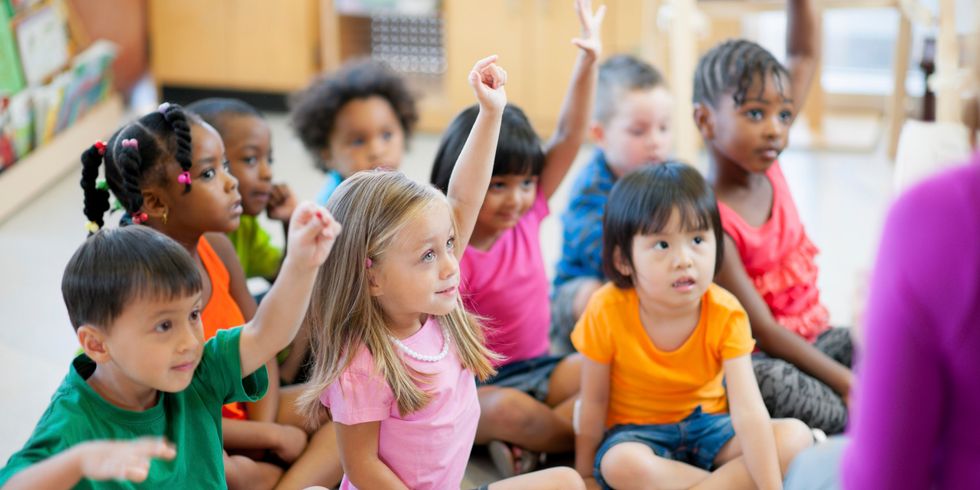When it comes to schooling, children in this day and age just can’t seem to catch a break. With stringent Common Core standards in effect, K-12 public education is only getting more difficult for children of the next generation. Now, even children under five are facing the great burden of our current education system, a system defined by high stakes testing. Agitated parents are placing their children into enrichment tutoring programs like Kumon while their children are still as young as two years old. Toddlers are walking through the doors of tutoring centers and having words and numbers drilled into their heads. Two and three-year-old children are learning material that would normally be introduced in a kindergarten or first grade curriculum. When I was three, I was hardly potty trained. I went straight to kindergarten without completing a full year of preschool. Oh, how times have changed.
Alison Gopnik, professor of psychology at the University of California, Berkeley has deemed these early learning enrichment programs “useless.” For toddlers and very young children, all these tutoring programs can do is emphasize memorization and repetition. Toddlers are too young to learn actual concepts; therefore, they usually end up just tracing numbers for a couple of hours after a full day of Kumon. What good does that really do? Well, it does give them the upper hand once they finally set foot into a kindergarten classroom. While their classmates are just getting introduced to numbers and letters, these children would have already been tracing those same figures for two or three years. It’s true that repetition is integral to learning. And memorizing is part of life. But it isn’t everything. In fact, I would argue that memorizing is one of the least important aspects of a child’s education. There is no denying that learning numbers and letters is important to a child’s education. But the standard subjects that high stakes testing loves to focus on are not the only important skills that children will need in this complex world. Children need to learn how to be creative and how to socialize. These two skills can easily be learned through what we call playtime. Yes, children can learn by playing with one another. No, they’re not completing multiplication tables or sounding out words together, but they are attempting to entertain one another in creative ways. And like I’ve said many times before, this world desperately needs creativity.
There’s nothing wrong with wanting the best for your children. There’s nothing wrong with wanting them to be ahead and giving them a gentle push in the right direction. There is, in my opinion, something wrong with forcing them to spend hours and hours memorizing letters and numbers before they even reach the age of five. I understand that the education system nowadays is extremely competitive. I understand why parents may feel anxious about sending their children off to kindergarten with only a traditional preschool education. Most preschools are more play-based with kids learning letters and numbers for only a small portion of the day and spending the rest of the day engaged in social and interactive activities with their classmates. Back then, sending children to play-based preschool was the obvious choice because children would always have time to learn letters and numbers during their elementary school education. Parents prioritized developing social skills for their children before core subjects like math and reading because they understood that a child could not prosper in the public education system without being able to socialize and cooperate with peers. Now with Common Core standards in place, there seems to be less and less time for children to be able to learn their core subjects. Before the No Child Left Behind Act was introduced, children were not expected to read until first grade. Now, in order to continue on to first grade, kindergarteners are required to be able to read at what was once considered a first grade level of reading. This new focus on academics has forced many schools to cut down on playtime for preschool, kindergarten, and first grade. And surely, schools do not know how much they’re losing by cutting down on playtime. According to Joan Almon, executive director of the Alliance for Childhood and former preschool and kindergarten educator, playing helps children to “develop language, express their creativity, expand their social skills, and generally learn about their world.” Sure, numbers and letters are important, but so are social skills and creative expression. A more serious side effect of pushing academics on children is the mental strain it can cause for these young children. According to Carleton Kendrick , a Boston family therapist, more young children than ever are reported to have anxiety and clinical depression symptoms. Yes, children under five are being diagnosed with mental illnesses because of the academic pressures placed on them. In the past, these symptoms would show in larger numbers during a child’s teen years when academic pressure truly starts kicking in. Now, there are children who are clinically depressed due to academic expectations before kindergarten has even started. It is unacceptable for our education system to be harming the mental health of our children.
Overall, young children need a healthy balance between academics and playtime. Given our current education system, I understand that this balance will be difficult for parents to navigate. In my opinion, it’s a great idea to introduce your children to concepts they may see in kindergarten. Even enrolling them in a junior tutoring program like Kumon might not be such a bad idea if that’s what you think is best for your child. But, please, make time for play. Please set aside several hours of the day to dedicate to play. Maybe it’s just me, but I don’t think toddlers should be spending more time in front of desk than a playground. We must allow our children to learn and grow at their own pace, even in this crazy, competitive educational environment.





















